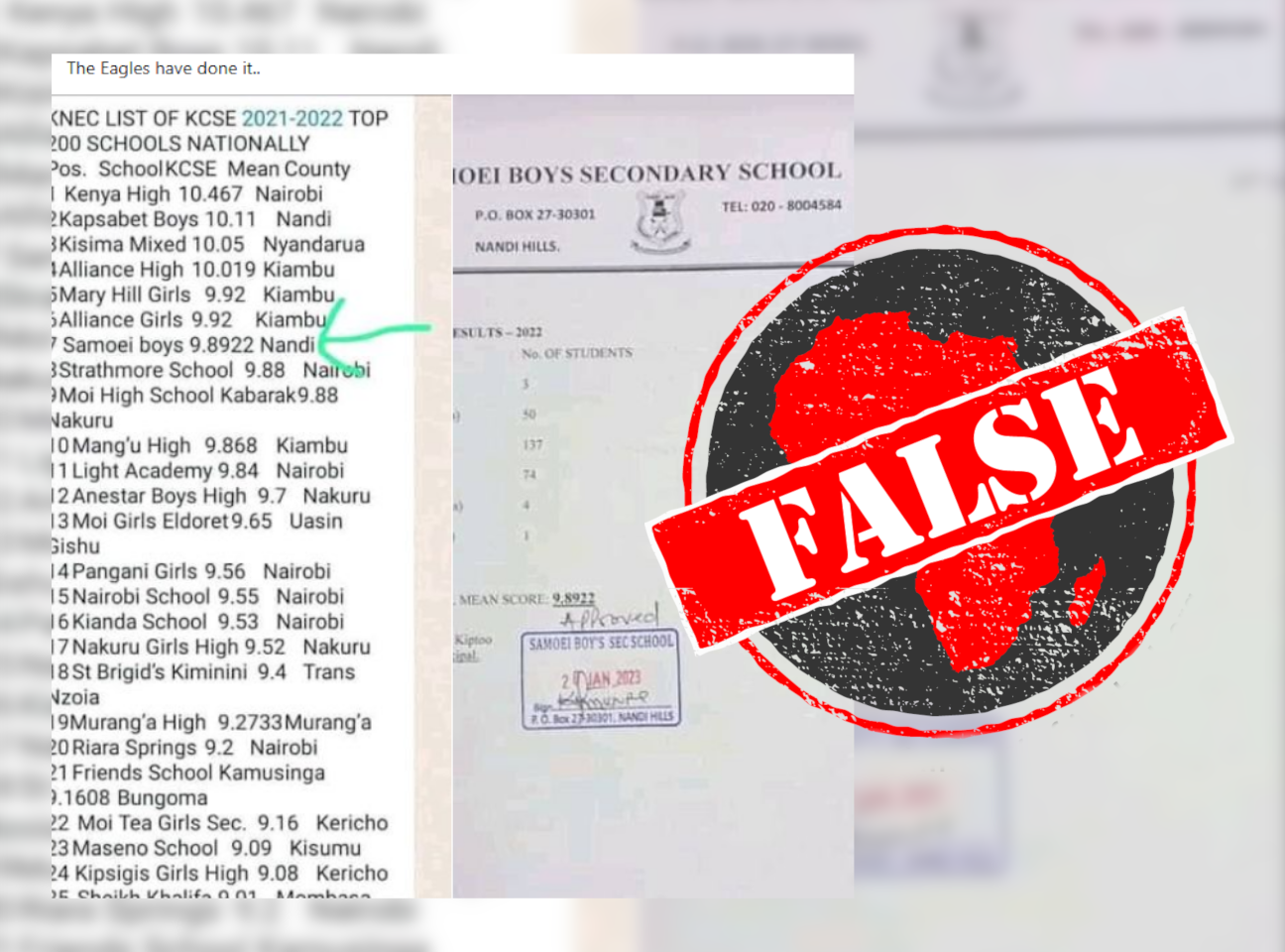IN SHORT: A screenshot of a WhatsApp message is circulating online with the claim it shows the top-performing schools in Kenya’s KCSE school-leaving exams. But it’s false. Kenya no longer ranks schools by their KCSE results.
A screenshot of what seems to be a WhatsApp message is going viral on social media with the claim it lists the 200 high schools with top results in the Kenya Certificate of Secondary Education (KCSE) exams in 2021 and 2022.
People who pass the exams are qualified with a secondary education. A grade of C+ or more allows them to study for a tertiary education, such as at university.
On 20 January 2023, education minister Ezekiel Machogu released the results of the KCSE exams held in 2022.
The screenshot is headed: “KNEC LIST OF KCSE 2021-2022 TOP 200 SCHOOLS NATIONALLY”.
KNEC is the Kenya National Examination Council, which oversees the KCSE and other exams.
The screenshot has also been posted here, here, here and here.
But does it really show the ranking of the top 200 schools in Kenya’s 2021 and 2022 KCSE exams?

Ranking discontinued to prevent unhealthy competition
In keeping with new government policy, the exam council no longer ranks schools and candidates. This is to discourage unhealthy competition.
Kenyan schools have previously tried to attract students who score well in national exams. But some have used harmful methods to get an advantage over their rivals.
No such ranking exists, even if the minister did say which schools had the highest number of grade A. This does not resemble the list on social media.
The screenshot is false.
Republish our content for free
For publishers: what to do if your post is rated false
A fact-checker has rated your Facebook or Instagram post as “false”, “altered”, “partly false” or “missing context”. This could have serious consequences. What do you do?
Click on our guide for the steps you should follow.
Publishers guideAfrica Check teams up with Facebook
Africa Check is a partner in Meta's third-party fact-checking programme to help stop the spread of false information on social media.
The content we rate as “false” will be downgraded on Facebook and Instagram. This means fewer people will see it.
You can also help identify false information on Facebook. This guide explains how.


Add new comment